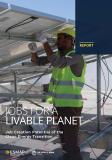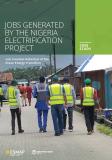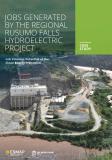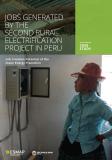Publications
This Handbook has been developed for the World Bank to facilitate the development of
landfill gas (LFG) management and landfill gas to energy (LFGTE) projects in Latin
America and the Caribbean (LAC).
The World Bank and ESMAP have embarked on a project to promote LFG management
initiatives in LAC region to enable stakeholders to recognize the potential demand for
LFG investments and corresponding energy supplies, and carbon emissions reductions.
There is emerging potential for LFG management projects to create incentives that will
improve the design and operation of the landfill, and as an additional benefit could
provide a source of "green" energy for adjacent neighbors of the landfill. The overall
World Bank/ESMAP project focuses on the LFG management side of the equation,
namely to:
• document the existing experiences in LAC and selected cities elsewhere;
• assess the current constraints to increased LFG capture and destruction or utilization
in LAC cities; and
• identify the minimum conditions and preferred institutional arrangements for
successful LFG management and utilization projects;
• develop outreach activities to promote this environmentally sound non-conventional
energy source; and
• contribute to the implementation of a regional approach aimed at reduction of
methane emissions and to develop carbon-trading opportunities.
The overall World Bank initiative takes a phased approach. The first phase aims to assist LAC client countries to better understand the best practice business models and
institutional arrangements for development of non-conventional energy sources at large
landfills in LAC region by means of LFG recovery and utilization systems.
It is expected that the Handbook will be used by those who, own, operate, engineer, and regulate landfill sites in LAC as a roadmap for the assessment of candidate projects and to initiate development of LFG management projects.
The Handbook is intended as a practical guideline that uses background information and a number of instructive tools to educate, guide, and establish a basis for decision making, technical feasibility assessment, economics assessment, and market evaluation of all aspects necessary for developing successful LFG management projects. While this Handbook is targeted to the LAC region, the principles can be applied to any region of the globe with the adjustment of a few parameters to take into consideration climatic and geographical differences as well as the local economic factors and influences.
Conestoga-Rovers & Associates. 2004. Handbook for the Preparation of Landfill Gas to Energy Projects in Latin America and the Caribbean. Energy Sector Management Assistance Programme paper series. Washington, DC: World Bank. http://documents.worldbank.org/curated/en/954761468011430611/Handbook-for-the-preparation-of-landfill-gas-to-energy-projects-in-Latin-America-and-the-Caribbean



